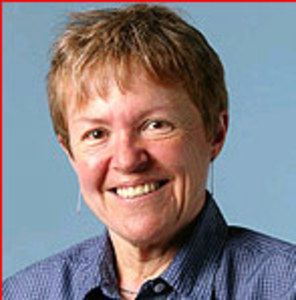Premier Jean Charest's brazen diversion of $700 million from his federal-budget loot bag to underwrite provincial tax cuts -- and, he hopes, to buy himself an election victory next week -- is already re-igniting anti-Quebec sentiment across the country. But it will infuriate some Quebecers, too.
The same week that federal Finance Minister Jim Flaherty earmarked $2.2 billion for Quebec, partly in enhanced equalization payments -- money intended to help poorer provinces offer comparable levels of public services -- a Hull hospital had to turn away patients for want of beds and surgeons.
It isn't the first time it has happened and, say hospital officials, it won't be the last.
Promising major tax cuts while government services deteriorate is a peculiar re-election strategy for Quebec Premier Jean Charest, Susan Riley writes.
Given the deplorable and deteriorating state of West Quebec's health services, the last thing many residents will want is an average $750 annual tax break -- however welcome tax breaks are, and, however heavily middle- and upper-income Quebecers are taxed. Polls repeatedly rank support for health spending ahead of tax cuts.
Indeed, Charest's bribe could hardly have been less appropriate or more poorly timed. It comes in the midst of a petition campaign organized by a group called Outaouais a l'urgence phase 2, that is lobbying for $150 million more health spending for West Quebec -- a group of doctors and citizens that says no party is serious about solving the local health crisis.
That crisis was highlighted in a recent survey by L'actualite magazine, that ranked Gatineau's two major hospitals last in the entire province, at 76th and 78th place.
Average waiting times at the Gatineau campus emergency run 18 hours, and waits of two days are not uncommon. Outaouais a l'urgence estimates that more than 100,000 area residents have no family doctor (which partly explains overcrowding in the emergency rooms.) The region is short 65 family doctors and 60 specialists. Women wait an average two months for diagnostic mammograms. And health spending in the area is only 70 per cent of what is spent in comparable regions elsewhere in the province.
Another $700 million is not going to fix the problem overnight, of course -- but it could help. For his part, Charest -- who, like every premier of every political stripe is only remotely concerned with this region -- defended his decision yesterday.
He noted that spending on health is increasing by six per cent a year and already consumes a huge portion of the provincial budget. He argues that the root problem of Quebec's health-care woes is a shortage of doctors, nurses and technicians. It will take time, he says, to replenish their ranks after previous Parti Quebecois governments pushed early retirements to curtail deficits.
But Gatineau, Hull and environs face special, and chronic, recruiting problems, since doctors and nurses earn significantly more across the Ontario border, where their bilingualism is often a prized asset. Patients, too, cross the river for treatment, but must pay extra unless equivalent service doesn't exist in Quebec. Attempts to bolster Quebec-based services -- from group doctor clinics to co-ops and new CLSCs -- also run into staffing problems.
But Charest's cynicism and self-interest will have an impact beyond this region.
For one thing, it makes a mockery of Quebec's long campaign to end the so-called fiscal imbalance -- the gap between growing federal surpluses and increasing demands for provincial health and other services. Bloc Quebecois leader Gilles Duceppe acknowledged as much yesterday: "I think that it (the tax break) weakens the (fiscal imbalance) argument. We plead endlessly that there are needs in health, education ... income support and -- voila !-- it will be used for other ends."
Patriotism being the last refuge of the scoundrel, Charest is ferociously defending his right to decide how Quebec spends its equalization money. He is right: It is Quebec's business. But the timing of his decision, the fact that he didn't disclose his intentions beforehand, could make life uncomfortable for his fellow premiers -- not to mention for his chief benefactor.
So far, Prime Minister Stephen Harper has been mute on Charest's promised tax giveaway. As a Conservative, he might be expected to approve any attempt to redirect government revenues to taxpayers. On the other hand, this won't help him mollify voters in other provinces (particularly his own) who are grumbling about his generosity to Quebec. Don't be "jealous," he told B.C. radio callers this week: Everyone, he said, gets something.
As for West Quebec voters, it will take more than a petition to rescue an ailing health care system. Sadly, sending five more Liberals to Quebec City on Monday isn't going to help, either.
Susan Riley's column runs Monday, Wednesday and Friday. E-mail: sriley@thecitizen.canwest.com






















Laissez un commentaire Votre adresse courriel ne sera pas publiée.
Veuillez vous connecter afin de laisser un commentaire.
Aucun commentaire trouvé